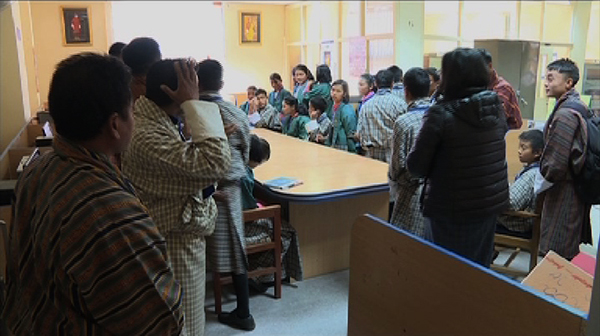 There are many students residing in the rural pockets of Bhutan who have never experienced city life. From walking a 90-kilometre distance to working in a construction area is what normally occupies them during school vacations. But not this time. 33 students from Gesarling Central School in Dagana were in Thimphu to experience something out of the ordinary.
There are many students residing in the rural pockets of Bhutan who have never experienced city life. From walking a 90-kilometre distance to working in a construction area is what normally occupies them during school vacations. But not this time. 33 students from Gesarling Central School in Dagana were in Thimphu to experience something out of the ordinary.
For an 18-year-old Tenzin Wangmo, her last visit to Thimphu is a vague memory. She visited Thimphu when she was very young. Old parents and financial constraints are some of the reasons why Tenzin has remained back home almost her entire youth. But urban exposure tour came as a getaway for her and her friends.
“If not for Leki sir, we wouldn’t have known how exactly Thimphu looks. I have been in Dagana for so long. I actually thought that Dagana is the best. But when I reached here, I realized I like Thimphu even more and Paro too. I just saw Thimphu in movies and I wished I could visit too,” she said.
The exposure trip also included four students with physical disabilities from the school. To build entrepreneurial skills in the students, the trip incorporated visits to start-up centres, FabLab and factories in Thimphu and Paro. While many said they learnt about modern technology and new places, a few of them learnt about understanding each other’s problems.
“I have realized that they are helping us not because they have enough but because they understand our problems. They have so much compassion,” said Tenzin.
“There are some of us here who didn’t even cross Dagapela. Some parents are divorced, some raised by a single parent and some do not have their parents. We are many of us here. Some make pocket money by working during winter,” added Passang Lhamo.
Coordinated by Leki Dawa, an entrepreneur who started the cartridge manufacturing industry said, the initiative is for the children who come from a disadvantaged family and those who deserve proper exposure.
“When they go back, these students can make money from their agricultural works. They can send all their produce here, make a profit out of it and continue their education,” he said.
From staying in a grand hotel to speaking live on radio, the students, for now, have experienced almost everything that might not have been possible otherwise.
Samten Dolkar












